Fungus gnats are tiny flying bugs that can drive you crazy. They love moist soil and often hang around houseplants. Luckily, you can get rid of fungus gnats with a few simple steps. This guide will help you understand fungus gnats treatment and how to stop them for good.
Manage Moisture to Keep Fungus Gnats Away
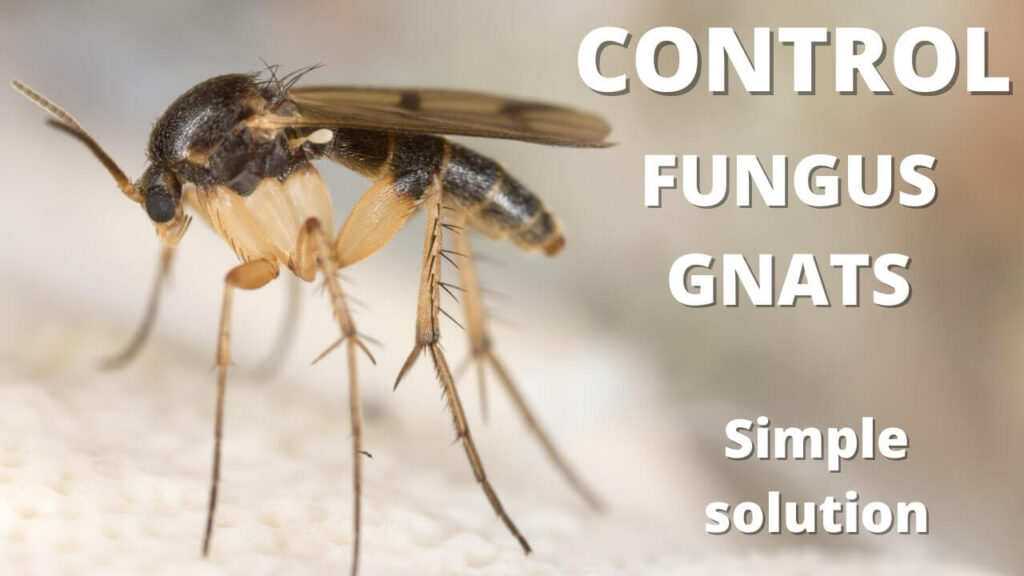
Fungus gnats love wet soil. If you keep your plants too wet, you’re giving them a perfect home. Here’s how to fix this:
1. Allow Soil to Dry
Letting the top inch or two of soil dry out can stop fungus gnats. They can’t survive without moist dirt. Check before watering your plants.
2. Bottom Water Your Plants
Instead of watering from the top, place your plant pots in a tray of water. The plant will soak up the water it needs, and the surface soil will stay dry. This makes it harder for fungus gnats to thrive.
3. Improve Drainage
Good drainage helps stop water from sitting in the bottom of pots. Use pots with holes and mix soil with sand or perlite for better drainage. Read also Fungus Gnats vs Fruit Flies: How to Tell the Difference in 2025
Control Adult Fungus Gnats
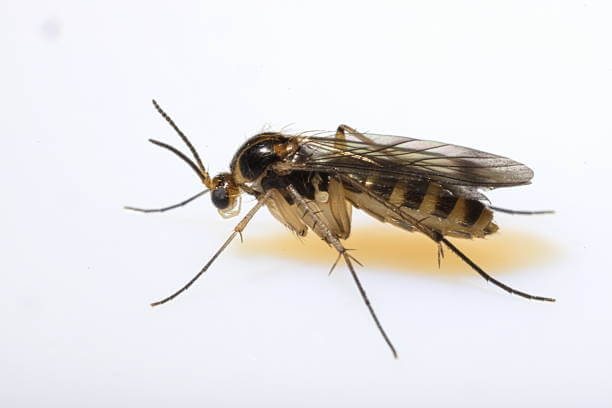
If adult gnats are flying around your home, targeting them is key. Here are some simple and effective tips:
1. Use Yellow Sticky Traps
Place yellow sticky traps near your houseplants. The bright color pulls in the gnats, and they get stuck. Replace traps as they fill up.
2. Try Potato Traps
Slice a raw potato and place it on the soil. Fungus gnat larvae will gather on the potato. After a day or two, throw the potato slice away and replace it.
Target Fungus Gnat Larvae
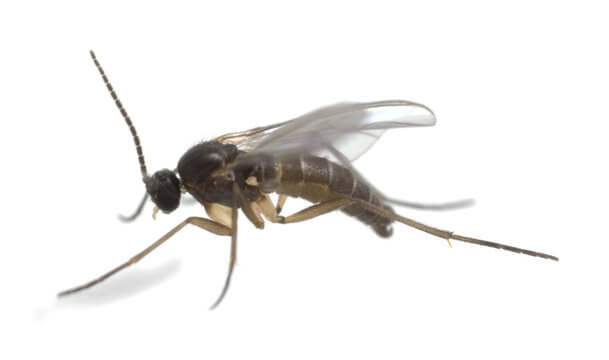
These larvae live in the soil and cause more gnats to appear. To stop this cycle, you need to eliminate the larvae:
1. BTI (Bacillus Thuringiensis Israelensis)
BTI is a natural bacteria that kills fungus gnat larvae. It’s safe for plants and humans. Use products like mosquito dunks and soak them in water. Use the water to drench the soil.
2. Hydrogen Peroxide Solution
Mix 1 part hydrogen peroxide (3%) with 4 parts water. Pour this into the soil. It kills gnat larvae on contact and doesn’t harm plants if properly diluted.
3. Sprinkle Diatomaceous Earth
Spread a thin layer of food-grade diatomaceous earth over the soil. It dries out larvae and kills them while being non-toxic.
4. Use Cinnamon
Cinnamon powder is a natural antifungal. Sprinkle it lightly over the soil to stop fungus growth, which supports larvae. Follow Us on Facebook, Pinterest and Twitter for the latest updates.
Prevent Future Infestations
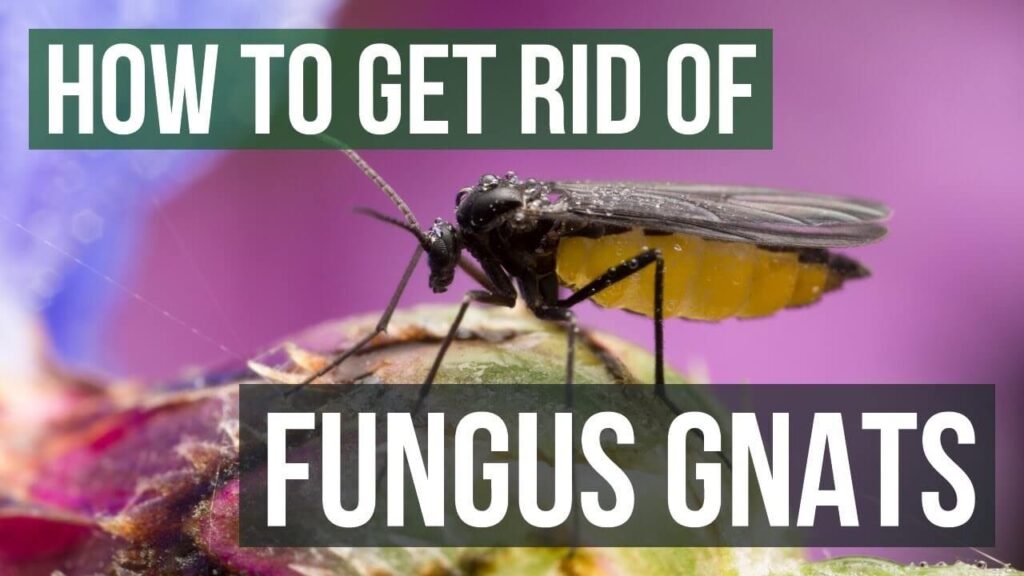
Once you’ve controlled fungus gnats, take steps to stop them from coming back.
1. Don’t Overwater
Water your plants less often. Only water when the topsoil is dry. Overwatering is the number one reason for gnats.
2. Clean Up Plant Debris
Dead leaves and trash in the soil give gnats a place to live. Remove decaying plant matter regularly to avoid issues.
3. Ensure Proper Drainage
Use a well-draining potting mix and make sure your pots have holes. Good drainage keeps the soil dry and unwelcoming for gnats.
4. Quarantine New Plants
When you bring new plants home, keep them away from your other plants for a few weeks. This gives you time to check for gnats or larvae before they spread.
Good Housekeeping advises these simple solutions can make a big difference in controlling these pests.
Final Thoughts
Getting rid of fungus gnats in house doesn’t have to be a big job. Start by drying out the soil, catching adult gnats, and killing larvae. Then take steps to prevent them from coming back. If you follow these tips, you can quickly achieve complete fungus gnats control. Say goodbye to these pesky bugs and enjoy your healthy, happy plants!
FAQs
- How do I get rid of fungus gnats quickly?
Use yellow sticky traps for adults and hydrogen peroxide or BTI to kill larvae.
- Does cinnamon kill fungus gnats?
Cinnamon deters fungus gnats by stopping the fungus larvae feed on.
- What is the fastest way to stop fungus gnats?
Dry out your soil, use sticky traps, and apply hydrogen peroxide to the soil.
- Is hydrogen peroxide safe for plants?
Yes, if diluted correctly, it’s safe and effective against larvae.
- Why are fungus gnats in my house?
They are attracted to overwatered plants and moist soil.


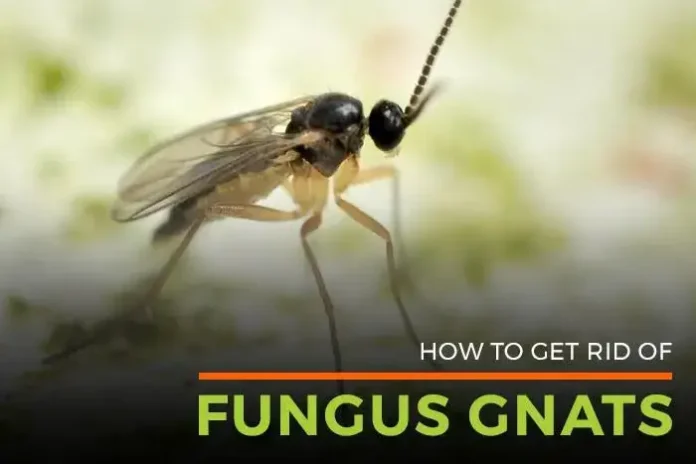

[…] and plants, causing frustration and potential harm to your green friends. If you’ve ever wondered How to Get Rid of Fungus Gnats quickly and effectively, you’re in the right place. This article will walk you through speedy, […]